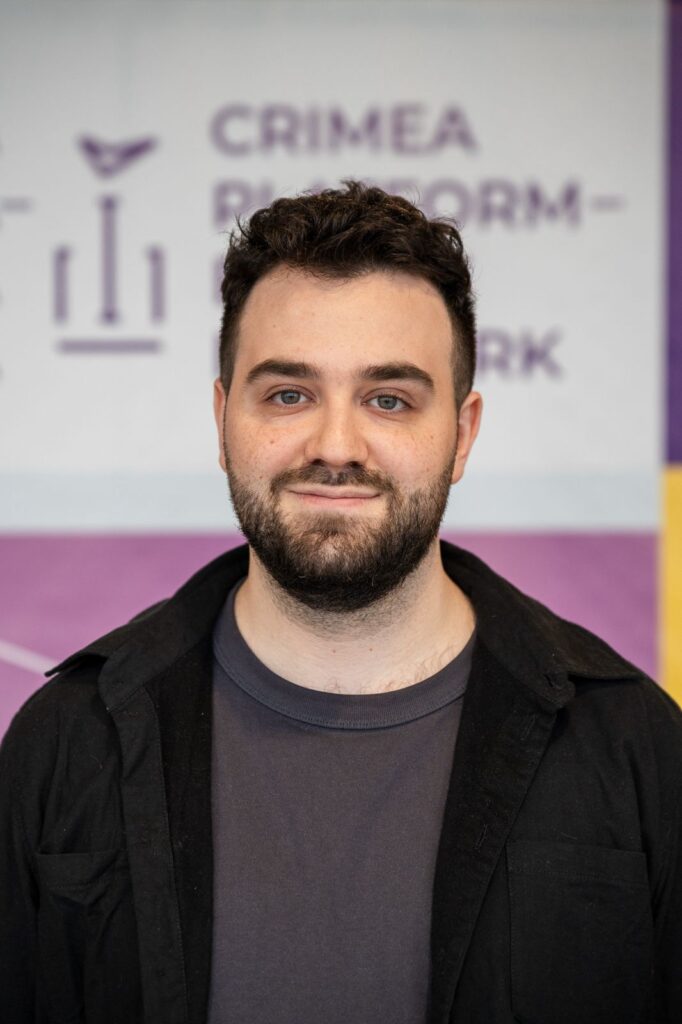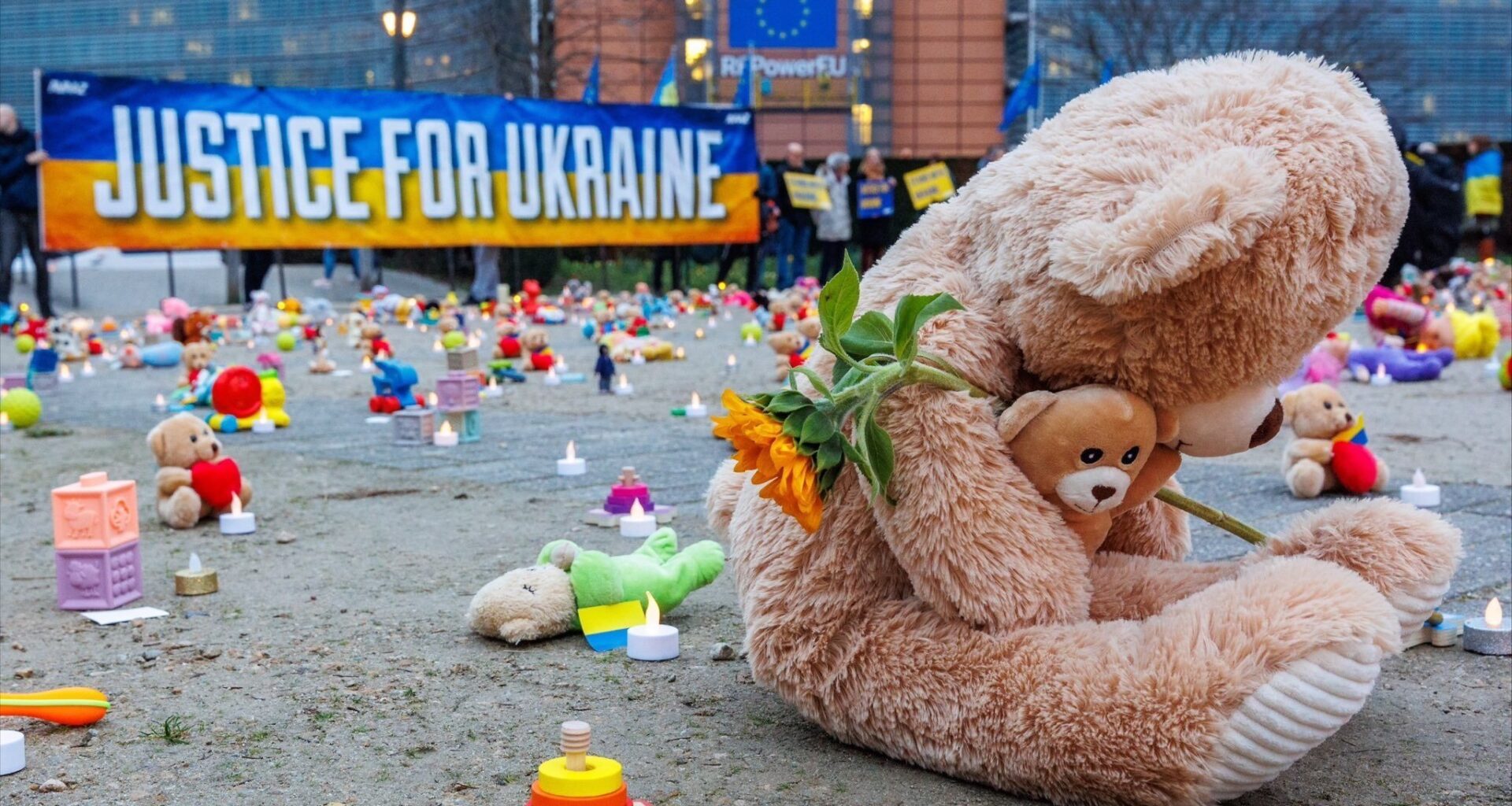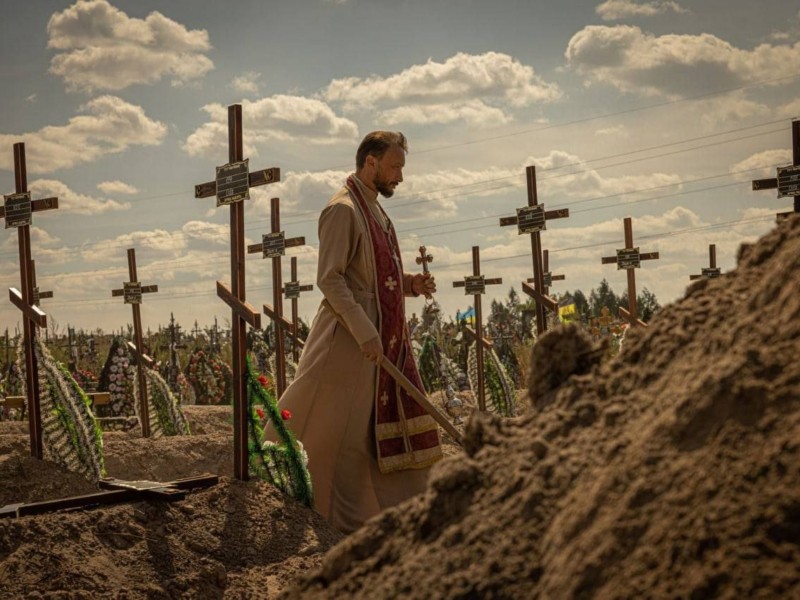The brutal realities of Russia's war crimes in Ukraine are stark: bodies exhumed from rubble, torture chambers echoing with pain, children forcibly displaced, and civilians enduring sleepless nights under relentless attacks. These atrocities are not faceless - they're orchestrated and executed by countless Russians.
The question looms: who will bring these perpetrators to justice for the horrors inflicted in places like Bucha and Mariupol? This is where the Rome Statute comes into play.
For over two decades, Ukraine hesitated to embrace this treaty fully. Signed in 2000 but left unratified, it hindered Ukraine's legal alignment with international standards and limited options for prosecuting Russian crimes. This caution is understandable, given that the war with Russia has persisted for a decade.
Concerns lingered, including fears that the International Criminal Court (ICC) might be manipulated by false Russian accusations against the Ukrainian military.
The landscape shifted dramatically on 15 August 2024, when President Zelenskyy submitted a ratification bill to parliament. Just days later, on 21 August, lawmakers approved it.
This pivotal move is expected to bolster Ukraine's international standing and enhance its ability to pursue justice for the staggering number of war crimes - over 130,000 documented since 2022 alone.
Euromaidan Press investigated why Ukraine finally ratified the Rome Statute and how it might help Kyiv punish Russian war criminals.
Why the Rome Statute matters
This historic document, adopted in 1998 in Rome, defined the crimes committed in international conflicts and the responsibility for them, which led to the creation of the ICC.
That same court, which found enough evidence to issue arrest warrants for Russian President Vladimir Putin and Russia’s Commissioner for Children’s Rights, Maria Lvova-Belova, accusing them of unlawful deportation and transfer of children from occupied areas of Ukraine to Russia.
ICC prosecutes individuals for a plethora of crimes divided into four larger categories:
- Genocide (killing members of the group, causing serious bodily or mental harm to members of the group, forcibly transferring children of the group to another group, etc.)
- Crimes against humanity (extermination, enslavement, torture, rape, deportation, apartheid etc).
- War crimes (wilful killing, inhumane treatment, extensive destruction of property, taking hostages, etc.)
- The crime of aggression (invasion of another state, bombardment, blockade of the ports or coasts, etc.)
124 states that ratified the Rome Statute are obliged to arrest the suspects related to any of these crimes, including Putin and Lvova-Belova. Russia withdrew its signature from the Rome Statute in 2016 after the ICC classified Russia’s annexation of Crimea as an "international armed conflict," which Russia did not want to recognize officially.
Other global powers like the US, China, and India have not ratified the Rome statute. The US, for example, fears that the ICC could prosecute American citizens, including high-ranking military personnel, for actions taken in their official duties, especially in conflicts in other countries.
What took Ukraine so long to ratify the Rome statute
Ukraine has used the same reasoning to postpone the statute ratification as the US, and it was especially exacerbated by the full-scale Russian invasion in 2022.
While Ukraine is defending itself, some soldiers and commanders still worry that they can be accused of war crimes and, therefore, sentenced by the ICC.
High-ranking officials might feel the “danger” looming over them the most because the ICC focuses on convicting those with power and influence to orchestrate the crimes, not minor cases.
However, there haven’t been any independently verified cases of large-scale crimes by the Ukrainian military in the war with Russia so far, except for staged propagandist news reports on Russian state-funded TV.
"Ukrainian military personnel do not have a systematic practice of large-scale committing of international crimes, so this is quite a strange argument, but we encounter it at every step,” Volodymyr Yavorskyy, a Program Director of the human rights organization Center for Civil Liberties, told Euromaidan Press.

He also believes that if some Ukrainian commanders actually feel guilty for causing massive intentional suffering for the opposing party, they should face the legal consequences of their crimes instead of hiding under the excuse of “self-defense.”
Furthermore, the Ukrainian government has already recognized the ICC jurisdiction in 2014 and 2015, after Russia’s annexation of Crimea and the war in Donbas, meaning that from that point, Ukrainian military personnel could theoretically have been prosecuted just like Russian citizens, Yavorskyy explained.
Seven years of impunity for potential war crimes
To smooth corners with the opponents of the ratification, who claim “danger” to soldiers, Ukraine included in the document a controversial amendment for a seven-year exemption from ICC prosecution for Ukrainians who committed war crimes.
This amendment found under article 124 in the Rome Statute could be seen as promoting impunity and might even hinder the ICC's ability to investigate Russian war crimes in Ukraine, Yavorksyy believes.
Article 124 of the Rome Statute was initially intended as a temporary measure to ease countries' concerns when joining the ICC. It was only used twice in 26 years, and 23 countries have already ratified an amendment to delete it.
“We cannot demand from one side [Russian] to not commit crimes, and on the other hand, say that we will not punish our [Ukrainian] citizens in case they commit war crimes,” Yavorksyy said.
This exemption will likely face strong international criticism for being unfair, as it creates a double standard.
Trending Now
Arie Mora, advocacy and communication manager for the NGO Ukrainian Legal Advisory Group, also argued that this article doesn't benefit Ukraine except to appease fears within certain military ranks.
“If we want justice, then we need to fully implement it. Indeed the ratification of the Rome Statute during active hostilities is unprecedented, but this does not mean that we shouldn’t do it,” Mora told Euromaidan Press.

He believes Ukraine should have ratified the Rome Statute without Article 124, as it potentially creates unnecessary risks.
“Even if some high-ranking military commanders fear prosecution, does this mean that the victims shouldn’t get their justice?” Mora said.
He suggested that the argument against ratification based on military concerns partly stems from Ukraine's unreadiness to take responsibility for its citizens’ actions. He believes embracing the Rome Statute could be a step towards greater political maturity and alignment with values of justice and truth.
How the Rome Statute empowers Ukraine
- It significantly enhances Ukraine's ability to bring Russian war criminals to justice.
Since 2022, Ukraine has collected more than 130,000 criminal proceedings against Russians, which must be properly investigated according to international standards.
However, Yavorskyy noted that some of them could be resolved only in 20-30 years, possibly catching criminals after changes in Russia's government or when they travel abroad. He also drew a parallel with how Nazi war criminals are still being found decades after World War II. That’s why Ukraine also needs legislation to support such long-term pursuits of justice.
“Ideally, we should be looking for these Russians who committed all these crimes in the same way, even decades later. And for this, legislation needs to require it. Unfortunately, our legislation is not quite in order yet,” Yavorskyy claimed.
To this day, Ukraine’s Criminal Code does not have “crimes against humanity,” such as the kidnapping of civilians, torture of civilians, or deportation of children, so this is a problem for qualifying and investigating a very large number of crimes committed by Russians.
2. It is a key requirement for joining the EU. All EU countries have ratified the Rome Statute and Ukraine has committed to do this many times already. Now it's again on the agenda for Ukraine-EU negotiations.
3. Ratification would also allow Ukraine to participate more fully in ICC processes, including voting at member country assemblies, participating in budget formation, and nominating Ukrainian citizens for positions such as judges.
4. Ukraine's membership would make the ICC more universal and increase its respect and support globally, Arie Mora believes.
“The more universal the court is, the more countries understand that it needs to be respected, its arrest warrants need to be executed, and it needs to be supported,” Mora said.
This proved effective when Putin did not attend a 2023 BRICS summit in South Africa because it is a signatory to the Rome Statute and thus obligated to arrest him if he entered the country.
In a recent case, Mexico, which recognizes the ICC's jurisdiction, invited Putin to the inauguration of President-elect Sheinbaum in October, despite an international arrest warrant. Mexico is obliged to arrest Putin if he visits the country, but their government rejected this appeal, while it still remains unclear if the Russian President would risk coming there.
“I believe that this is very important if we really want some justice in the future, and without justice, I believe that peace will be impossible. If no one is convicted, then everything that Russians did in Bucha and Mariupol might seem like “Ukrainian fakes” without proper investigations and verdicts,” Yavorskyy stated.
This concern is particularly poignant given the experience with investigating crimes related to the Euromaidan protests in 2014, where statutes of limitations have allowed some perpetrators to escape justice.
As Ukraine continues its fight for sovereignty and justice against Russia, the ratification of the Rome Statute will improve a legal system internally and internationally for the prosecution of thousands of Russian war crimes.
Related:
- Armenia ratifies Rome Statute, gains power to arrest Putin on its soil
- Ukraine calls on Mexico to arrest Putin during Mexican President’s inauguration
- International Criminal Court issues arrest warrants for high-ranking Russian military officials
- Human rights groups urge ICC to investigate leading Russian propagandists for hate crimes
- Putin must face trial in ICC for crimes against Ukraine, says deputy mayor of The Hague on second anniversary of Russia’s war





